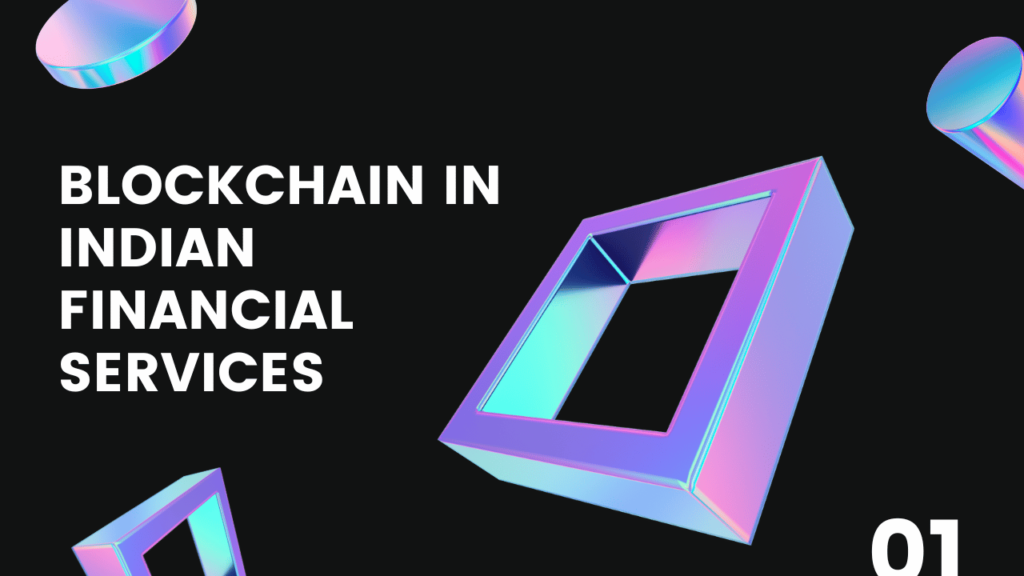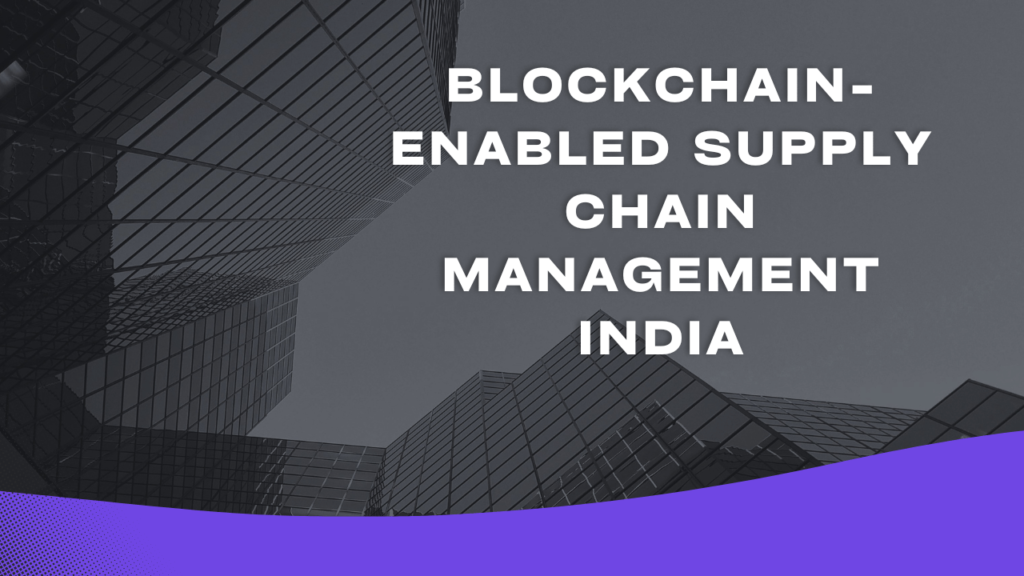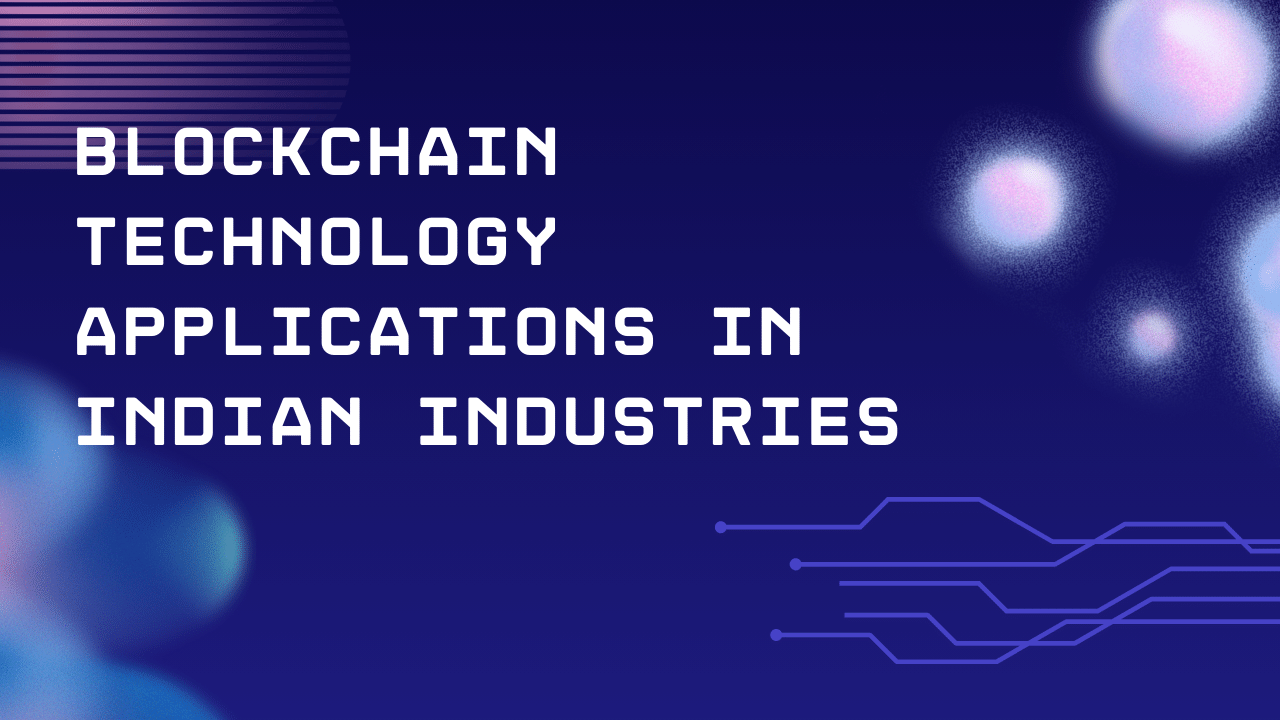Indian industries are experiencing a profound shift with the integration of blockchain technology, an innovative breakthrough poised to revolutionize various sectors. Efficiency, transparency, and security are the cornerstone features driving this digital ledger technology’s adoption across diverse domains. With the incorporation of blockchain technology into India’s manufacturing sector, the nation is taking a significant stride towards economic and technological dominance, solidifying its position as a global leader in technology. Blockchain Technology Applications in Indian Industries hold immense promise, offering unprecedented opportunities for growth, efficiency, and competitiveness.
Who Benefits from Blockchain in Indian Industries?
Everyone from public agencies to private companies to individual citizens stands to gain from blockchain technology’s implementation in India’s industrial sectors. Blockchain has the potential to transform many industries by making transactions more secure, transparent, and efficient. This includes the financial sector, healthcare, education, supply chain management, and many more. A level playing field in the global market is being offered to small and medium-sized enterprises (SMEs) as well as the tech giants by this transformation.
Transforming the Financial Sector through Blockchain Technology
Thanks to its ability to increase transparency, efficiency, and security, blockchain technology is changing the face of India’s financial services.
Blockchain in Indian Financial Services

With the introduction of blockchain technology, the Indian financial sector has been greatly affected. Transparency and unmatched security are its hallmarks, and they help cut down on fraud and middlemen. Both consumers and institutions gain from this innovation’s ability to expedite transactions while simultaneously lowering associated costs.
Validation of Digital Identity through Aadhaar and Blockchain
Blockchain technology has completely transformed digital identity verification when integrated with India’s biometric identification system, Aadhaar. Together, these factors make identity verification more secure and efficient, which in turn reduces the likelihood of fraud and theft and makes it easier for people to gain access to financial services.
Blockchain for Efficient Tax Monitoring in India
India has entered a new age of efficiency and transparency with the application of blockchain technology in tax monitoring. Blockchain technology ensures accurate revenue collection and compliance with tax regulations by automating and securing tax records, minimizing errors and fraud.
Indian Governmental Decentralization and the Role of Technology
Decentralization, made possible by blockchain technology, improves accountability and transparency in India’s government. A more democratic and inclusive model of government is on the horizon, one in which data and technology are used to the advantage of all citizens rather than a select few, thanks to this change.
Technological Empowerment with Blockchain in India
Blockchain technology is empowering various industries in India. Both private companies and public agencies can benefit from its promotion of a digital ecosystem that is decentralized, transparent, and secure in terms of both innovation and operational efficiency.
Transforming Supply Chains with Blockchain
Blockchain technology has brought about a new era of trust, efficiency, and transparency in supply chain management in various Indian industries.
Blockchain-Enabled Supply Chain Management India

By creating an auditable, immutable record of goods’ creation, shipment, and receipt, blockchain technology is revolutionizing India’s supply chain management. Reduced counterfeiting, guaranteed product quality, and increased consumer trust are all outcomes of this openness.
Smart Contracts in Indian Legal System
By eliminating the need for middlemen, guaranteeing the authenticity of contracts, and automating their execution, smart contracts enabled by blockchain technology are transforming the Indian legal system. Because of this breakthrough, the judicial system is now more streamlined, efficient, and secure against fraud.
Blockchain Solutions for Indian Retail
Blockchain technology brings a new degree of trustworthiness and openness to the consumer goods retail industry. It promotes a more responsible and sustainable consumption model by allowing consumers to trace the origin and authenticity of products, which helps with food safety and ethical sourcing.
Energy and Resources Management through Blockchain
By facilitating the tracking of renewable energy production and consumption and allowing transparent and efficient transactions in energy trading, blockchain technology offers innovative solutions for energy and resource management in India.
Blockchain for Healthcare in India
Data security, patient privacy, and the integrity of medical records are all areas that blockchain technology has the potential to improve in the healthcare sector. It improves healthcare efficiency and quality by allowing authorized parties to securely share health records.
Education with Blockchain
By introducing a trustworthy and transparent system for verifying educational credentials, blockchain technology is poised to transform the Indian education sector.
Digital Certificates Blockchain India
False academic credentials have decreased significantly since blockchain technology was used to issue digital certificates. The issuance of tamper-proof certificates made possible by storing educational records on a blockchain makes them easy to verify by other educational institutions or employers, and also ensures their authenticity.
Blockchain in Indian Education Sector
In addition to preventing certificate fraud, this technology can improve the quality of education students receive. Secure and efficient sharing of academic records, management of intellectual property rights for educational content, and the introduction of new pedagogical approaches are all within the realm of possibility with blockchain technology.
Peer-to-Peer Networking in Indian Industries
In addition to facilitating P2P networking in the education sector, blockchain technology has broader applications beyond digital certificates. This has the potential to pave the way for new forms of online education by eliminating middlemen and allowing students and teachers to communicate, share materials, and work on projects side by side.
Innovating in Healthcare through Blockchain
From managing patient data to tracking medications, blockchain technology has the potential to solve numerous persistent problems in healthcare.
Blockchain for Healthcare in India
Blockchain technology improves patient privacy and the reliability of medical information by guaranteeing the secure, immutable recording of health records. It facilitates the efficient transfer of critical health information among authorized parties and allows healthcare providers to provide a better coordinated care experience.
Drug Traceability
Millions of people in India are at risk due to the prevalence of counterfeit pharmaceuticals. By adding an exegrity are protected by this traceability, which helps to deter counterfeiters.
Secure Patient Data Sharing
Healthcare providers can now share patient data securely and with patients’ consent thanks to blockchain technology. Without compromising patient privacy or violating any data protection laws, this interoperability has the potential to enhance patient care, treatment results, and diagnostic precision.
Blockchain Driving Innovation in Public Services
Because it can make government operations more efficient, transparent, and trustworthy, blockchain has the ability to revolutionize public services in India.
Blockchain for Transparency in Indian Government Services
Transparency and accountability can be greatly enhanced by the Indian government through the use of blockchain technology in public services. In order to make government operations more open and lessen chances for corruption, this encompasses all aspects, from the distribution of social benefits to the administration of land records.
IndiaChain: Blockchain for Public Good
The launch of IndiaChain marked a watershed moment in the movement to use blockchain technology for the common good. In addition to increasing efficiency, IndiaChain strengthens public faith in government institutions by standardizing procedures like record management and subsidy distribution.
Digital Identity Verification with Aadhaar and Blockchain
Secure and efficient identity-based transactions are made possible through the integration of blockchain technology with Aadhaar, a digital identity verification system. By offering a foolproof method of verifying identities, this combination can streamline various public services, such as voting, banking, and social security.
Frequently Asked Questions
How is blockchain technology revolutionizing the Indian financial sector?
The use of blockchain technology is causing a stir in India’s banking industry because it offers a new standard for safe, transparent, and efficient financial transactions; it also helps cut down on fraud and speeds up settlement times.
What is the impact of blockchain technology on supply chain management in India?
Improving overall supply chain efficiency, offering real-time visibility, increasing traceability, and decreasing losses from counterfeit goods are some ways that blockchain technology impacts supply chain management in India.
Can blockchain technology improve transparency in Indian government services?
Without a doubt, blockchain technology has the potential to greatly enhance the openness of Indian government services by facilitating trustworthy record-keeping, improving the effectiveness of public administration, and guaranteeing secure and irreversible record-keeping.
What are the challenges in adopting blockchain technology in Indian industries?
Need for regulatory clarity, development of technical infrastructure, awareness and comprehension of blockchain, and integration with current systems are some of the obstacles to blockchain technology adoption in Indian industries.
How does blockchain technology benefit the healthcare sector in India?
Securing patient data, facilitating the secure exchange of medical records, improving the overall efficiency of healthcare delivery, and enhancing the integrity of the drug supply chain are all ways in which blockchain technology helps India’s healthcare sector.
Also Read: Decentralized Finance (DeFi) India
Conclusion
A new age of innovation has dawned across Indian industries with the advent of blockchain technology. Blockchain is a foundational technology that has the potential to revolutionize many industries, including supply chain management, healthcare delivery, educational integrity, and financial transactions. The integration of Blockchain Technology Applications in Indian Industries promises greater efficiency, transparency, and security, ushering in a new era of trust and reliability. Greater efficiency, transparency, and security are on the horizon for India’s industries as the country keeps embracing digital ledger technology. By making services more accessible and trustworthy, blockchain integration across sectors not only enhances the quality of life for citizens but also solidifies India’s position as a global technology leader. As it continues to develop and find new uses, blockchain technology is surely leading Indian industries toward a better, safer future.

Timothy Jensen is an expert writer who specializes in the world of cryptocurrencies, including blockchain technology and Bitcoin. He has a passion for explaining complex topics in an easy-to-understand way. Timothy’s work aims to demystify the digital currency landscape for his readers.

